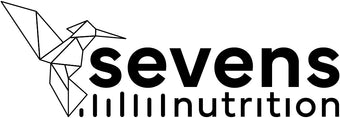Biotin , also known as vitamin B7 or vitamin H, is an essential nutrient that plays a crucial role in multiple biochemical processes in the body. From macronutrient metabolism to strengthening hair, skin, and nails, this water-soluble vitamin is an indispensable ally for health and beauty.
The Role of Biotin in the Body
Biotin acts as an enzymatic cofactor for various carboxylases, facilitating the metabolism of fatty acids, amino acids, and gluconeogenesis. Furthermore, it has been shown to influence genetic regulation, optimizing essential cellular processes.
Natural Sources of Biotin
Since human cells cannot synthesize biotin on their own, we must obtain it through diet and intestinal microbiota.
-
Dietary Sources: It is found in high concentrations in organ meats, egg yolks, some vegetables, and cow's milk. It is also present in smaller amounts in foods such as peanuts, soybeans, sunflower seeds, mushrooms, and sweet potatoes. For those following a vegan diet, nutritional yeast is an excellent source of biotin.
-
Intestinal Production: The intestinal microbiota also produces biotin, which can be absorbed in the large intestine. However, the amount produced depends on the composition and balance of intestinal bacteria.
Biotin Absorption and Metabolism
Biotin absorption occurs primarily through the sodium-dependent multivitamin transporter (SMVT), a protein encoded by the SLC5A6 gene, present in organs such as the liver, intestine, pancreas, and kidneys. In addition, in certain tissues, biotin can also be transported through the monocarboxylate MCT1.
Once in the body, biotin is utilized by specialized enzymes such as holocarboxylase synthetase (HLCS), which binds it to apocarboxylases to activate them. When these enzymes are degraded, biotinidase releases free biotin for reuse, thus completing the metabolic cycle.
Factors Affecting Biotin Homeostasis
The availability of biotin in the body depends on two key factors:
-
Efficiency in intestinal absorption , regulated mainly by the SMVT transporter.
-
Biotin recycling capacity , determined by the enzymes HLCS and biotinidase.
Biotin Deficiency: Impact on Health
Disorders in biotin homeostasis can lead to deficiencies, either due to genetic disorders or low dietary intake. Two of the most studied conditions are:
-
Holocarboxylase synthetase (HLCS) deficiency: Affects the activation of essential carboxylases.
-
Biotinidase deficiency: Prevents the release of free biotin, reducing its cellular availability and intestinal absorption.
Symptoms of deficiency include fatigue, hair loss, dry skin, brittle nails, and neurological disturbances such as depression and tingling in the extremities.
Biotin Sevens: Nutritional Support for Complete Well-Being
To ensure adequate biotin intake, the Biotin Sevens supplement is an excellent choice. Its formula, enriched with zinc, selenium, vitamin D3, and vitamin B12, not only strengthens hair, skin, and nails but also supports the immune system and energy metabolism.
Key Benefits of Biotin Sevens:
-
Promotes strong and healthy hair.
-
Improves the texture and appearance of the skin.
-
Strengthens nails, preventing them from becoming brittle.
-
Supports the immune system and nerve function.
-
Improves macronutrient metabolism.
Directions for use: 1 capsule daily, ideally with meals for better absorption.
Incorporate Biotin Sevens into your daily routine and give your body the support it needs to stay healthy and radiant from within. Your well-being begins with the right nutrients!





